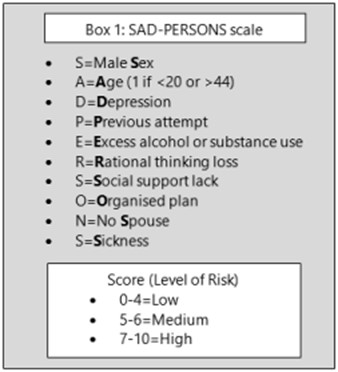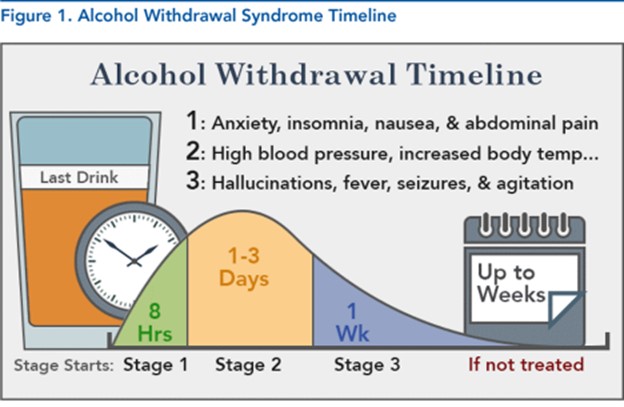A nurse is caring for a client following a suicide attempt. The client has a history of depression, substance abuse, and anorexia nervosa. Which of the following actions is the nurse's priority?
Initiating suicide precautions
Administering the Hamilton Depression Scale
Making a contract with the client for eating behavior
Reviewing the client's toxicology laboratory report
The Correct Answer is A
In this scenario, the nurse's priority should be initiating suicide precautions. Safety is of utmost importance when caring for a client following a suicide attempt. By implementing suicide precautions, the nurse can take steps to ensure the client's physical and emotional well-being, such as removing potential means of self-harm and closely monitoring the client's behavior. This action aims to prevent further harm and promote a safe environment for the client.
Incorrect:
B- Administering the Hamilton Depression Scale: While assessing the client's level of depression is important, it is not the priority in this situation. The client has just attempted suicide, indicating a high level of risk. Therefore, the nurse should prioritize safety measures and immediate interventions rather than administering a depression scale.
C- Making a contract with the client for eating behavior: While addressing the client's eating behavior is important, it is not the priority in this situation. The client has just attempted suicide, indicating a significant risk to their life. Ensuring their safety and providing appropriate mental health support take precedence over addressing their eating behavior.
D- Reviewing the client's toxicology laboratory report: While reviewing the client's toxicology report may provide valuable information about substance abuse, it is not the priority in this scenario. The immediate concern is the client's safety following a suicide attempt. The nurse should focus on implementing suicide precautions and addressing the client's emotional and physical well-being.

Nursing Test Bank
Naxlex Comprehensive Predictor Exams
Related Questions
Correct Answer is ["A","B","C","E"]
Explanation
When caring for an adolescent female with an eating disorder, the nurse should expect the following manifestations:
A- Amenorrhea: Amenorrhea refers to the absence of menstruation, which is commonly seen in individuals with eating disorders, particularly in cases of severe weight loss or malnutrition.
B- Altered body image: Individuals with eating disorders often have a distorted perception of their body shape and size. They may see themselves as overweight or have a negative body image, even when they are significantly underweight.
C- Hyperactivity: Some individuals with eating disorders may exhibit excessive physical activity or restlessness. This hyperactivity can be a result of increased energy expenditure, driven by a fear of weight gain or a compulsive need to burn calories.
E- Bradycardia: Bradycardia, or a slow heart rate, is a common finding in individuals with severe malnutrition or very low body weight. It can be a result of the body's adaptive response to conserve energy in a state of limited food intake.
Incorrect:
D- Verbalized desire to gain weight is not typically expected in individuals with eating disorders. They may express a desire to lose weight or have a fear of gaining weight instead.
Correct Answer is A
Explanation
Anxiety and diaphoresis: Alcohol withdrawal commonly presents with symptoms of anxiety, restlessness, and excessive sweating (diaphoresis). These symptoms are due to the central nervous system's hyperactivity caused by the sudden cessation of alcohol intake.
Incorrect:
B- Muscle aches and chills: Muscle aches and chills are not typical manifestations of alcohol withdrawal. These symptoms are more commonly associated with opioid withdrawal rather than alcohol withdrawal.
C- Fatigue and depression: Fatigue and depression are common symptoms during alcohol withdrawal. The client may feel tired, lack energy, and experience a low mood due to the neurochemical imbalances that occur during withdrawal.
D- Arrhythmia and respiratory depression: While alcohol withdrawal can lead to some cardiovascular and respiratory symptoms, such as increased heart rate and blood pressure, severe arrhythmia and respiratory depression are not typical findings. These more severe symptoms may indicate a more severe withdrawal syndrome or coexisting medical conditions that require immediate medical attention.

Whether you are a student looking to ace your exams or a practicing nurse seeking to enhance your expertise , our nursing education contents will empower you with the confidence and competence to make a difference in the lives of patients and become a respected leader in the healthcare field.
Visit Naxlex, invest in your future and unlock endless possibilities with our unparalleled nursing education contents today
Report Wrong Answer on the Current Question
Do you disagree with the answer? If yes, what is your expected answer? Explain.
Kindly be descriptive with the issue you are facing.
